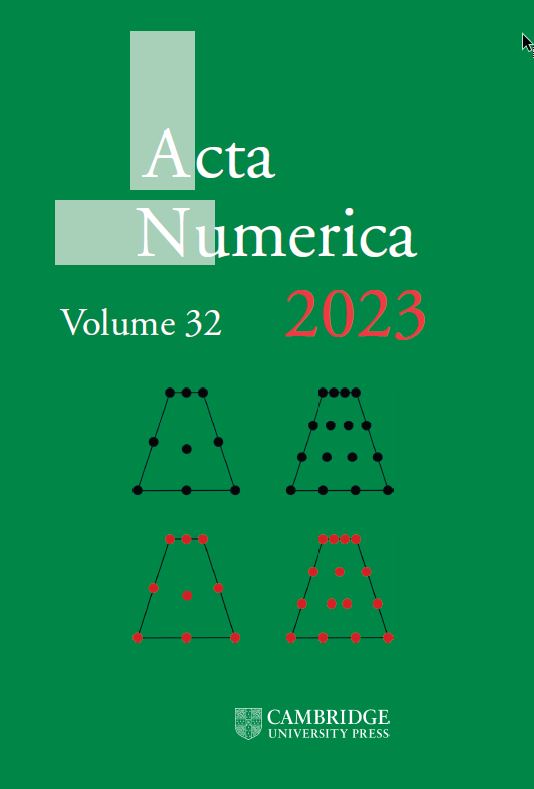无导数优化方法
IF 11.3
1区 数学
Q1 MATHEMATICS
引用次数: 80
摘要
在科学、工程和人工智能应用中出现的许多优化问题中,目标函数和约束函数只能作为黑盒或模拟oracle的输出,而不提供衍生信息。这样的设置需要使用无导数或零阶优化的方法。我们对这些方法的发展进行了回顾和展望,重点强调了非线性优化和机器学习文献中这些问题的最新发展和统一处理。我们根据黑盒函数的假设属性以及方法的特征对方法进行分类。我们首先概述了应用于无约束非凸优化问题的确定性方法的主要设置,其中目标函数由确定性黑盒oracle定义。然后,我们讨论了随机方法的发展,假设目标的一些额外结构的方法(包括凸性,可分性和一般非光滑组合),黑箱oracle的输出是随机的问题的方法,以及处理不同类型约束的方法。本文章由计算机程序翻译,如有差异,请以英文原文为准。
Derivative-free optimization methods
In many optimization problems arising from scientific, engineering and artificial intelligence applications, objective and constraint functions are available only as the output of a black-box or simulation oracle that does not provide derivative information. Such settings necessitate the use of methods for derivative-free, or zeroth-order, optimization. We provide a review and perspectives on developments in these methods, with an emphasis on highlighting recent developments and on unifying treatment of such problems in the non-linear optimization and machine learning literature. We categorize methods based on assumed properties of the black-box functions, as well as features of the methods. We first overview the primary setting of deterministic methods applied to unconstrained, non-convex optimization problems where the objective function is defined by a deterministic black-box oracle. We then discuss developments in randomized methods, methods that assume some additional structure about the objective (including convexity, separability and general non-smooth compositions), methods for problems where the output of the black-box oracle is stochastic, and methods for handling different types of constraints.
求助全文
通过发布文献求助,成功后即可免费获取论文全文。
去求助
来源期刊

Acta Numerica
MATHEMATICS-
CiteScore
26.00
自引率
0.70%
发文量
7
期刊介绍:
Acta Numerica stands as the preeminent mathematics journal, ranking highest in both Impact Factor and MCQ metrics. This annual journal features a collection of review articles that showcase survey papers authored by prominent researchers in numerical analysis, scientific computing, and computational mathematics. These papers deliver comprehensive overviews of recent advances, offering state-of-the-art techniques and analyses.
Encompassing the entirety of numerical analysis, the articles are crafted in an accessible style, catering to researchers at all levels and serving as valuable teaching aids for advanced instruction. The broad subject areas covered include computational methods in linear algebra, optimization, ordinary and partial differential equations, approximation theory, stochastic analysis, nonlinear dynamical systems, as well as the application of computational techniques in science and engineering. Acta Numerica also delves into the mathematical theory underpinning numerical methods, making it a versatile and authoritative resource in the field of mathematics.
 求助内容:
求助内容: 应助结果提醒方式:
应助结果提醒方式:


